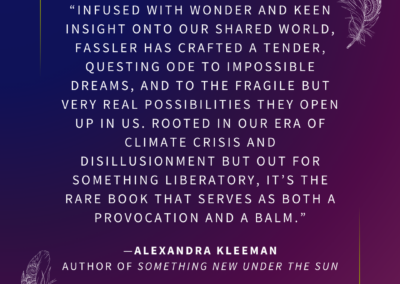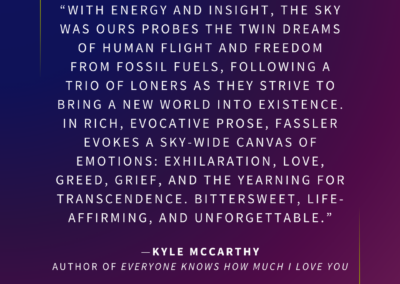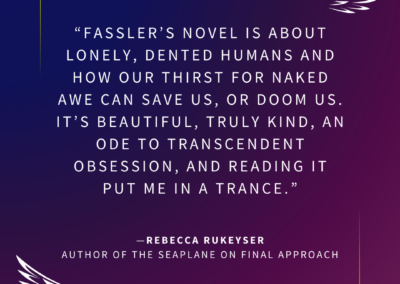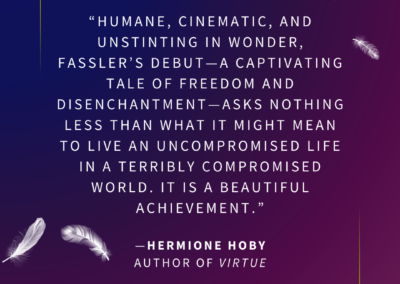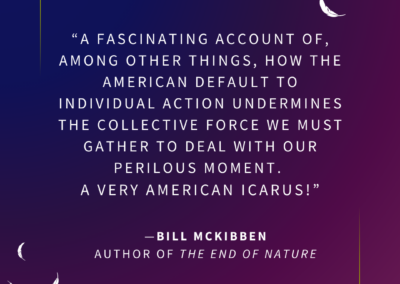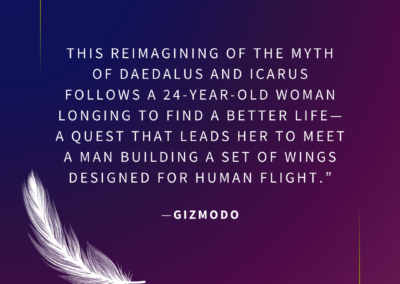Floored.
By a book that takes us into and across the sky.
Floored was the first word that came to my mind as I turned the last page. Months later, it is still the best single-word description of how I feel about Joe Fassler‘s debut novel: The Sky Was Ours, which was recently published by Penguin Random House. The book released at a moment when many Americans’ attention was very much on the ground — coincident with the formation of student encampments on college campuses across the country, a historical moment when notions of liberation and generative, collective resistance are inextricably connected to the particular pieces of land, who can occupy them, and on what terms. Despite the necessary downward gaze of this spring, this soaring novel is already receiving well-deserved acclaim.
Because Joe is a friend and treasured collaborator (familiar to some of you as an EcoGather Consulting Scholar and leader of our writing workshops), I got my hands on an advance copy. But even those who received their pre-orders mere days ago keep messaging me to say that they are entirely swept up in it is propulsive force. Fassler’s timely story and intimacy with his characters really do enrapture readers, allowing us to both travel through the predicaments that vex contemporary humans and to escape, at least for a short while, the gravitational pull of despair. After journeying with Jane, Barry, and Ike, it is nearly impossible to shift back into an auto-piloted mode of moving through our own lives.
“The world below nearly as dark as the sky I was in, nearly as dark as all the outer space above it. Only the tug of gravity, always in the same direction, could tell you which was which.
To be clear, it is not the tug of gravity that has me floored. It is the force of story woven with labor, skill, and stubborn dedication, like the cloth of retted flax that might make flight possible. It is the power of contempory (very recent past) fantasy, one that draws so much from the settings, textures, tensions, and aspirations of my own human incarnation.

Leslie Jamison got to the heart of it when she described The Sky Was Ours as “a dark fairy tale with a gripping human pulse; attuned to global crisis but also rooted deeply in the psyches of its characters, animated by their grief and most of all by their longing—longing for wonder, escape, transcendence, hope for our profit-rotted world; a longing that soars through these pages with an energy and tenderness utterly its own.”
I want to share about how this book did its work on me. It’s nearly impossible to talk about a book, especially a work of fiction, with those who haven’t yet read it. On top of being sensitive to spoilers, there’s the concern about unduly influencing and perhaps unintentionally constraining the way a story might do its work on a future reader. To minimize my meddling, I’ll follow the lead of author and publisher and set up the rest of this reflective review by offering the summary that appears on the book itself.
In a sudden and unprecedented burst of rebellion, Jane decides to abandon everything she knows, leaving behind her relationships and responsibilities to go on the road. That’s how she meets Barry, a brilliant and charismatic recluse living on an isolated homestead near New York’s Canadian border. For years, in secret, Barry’s chased an unlikely obsession: to build a pair of wings humans can fly in, with designs inspired by an obscure precursor to the Wright Brothers. It’s no mere hobby. He’s convinced his dream of flight will spark a revolution, delivering us from the degradation of modern capitalism and the climate chaos that awaits us.
Jane is captivated by Barry’s radical vision, even as his experiments become more dangerous. But she’s equally drawn to the enigmatic Ike, Barry’s gentle, thoughtful son, who’s known no other reality—and who only wants to keep his father alive, tethered to ground and to reason.
So begins an inventive, dazzlingly beautiful story about the human desire for transcendence—our longing to escape the mundane and glide into a euphoric future. Inspired by the myth of Daedalus and Icarus, The Sky Was Ours is a powerful and imaginative debut that explores the question: If you had access to technology that allowed you to escape the confines of your life, would you use it? And if Barry’s wings really could change the world, would that be freedom?
When Joe first obliquely mentioned that he’d been writing a novel for the better part of a decade and told me very vaguely what it was about, I was curious but not particularly compelled. I do my best to minimize my time in airports and planes. So when he said flight, my mind went to the terminal and tarmack. Those terrible places crowded out all memories of my childhood fascination with bodily flight. The senseless battles with customer service bots took off ahead of my not infrequent dreams of winging through the sky with bird-like flap and flutter. But if I peer beneath my loathing of commercial air travel, hyper-transactional airlines, and the entitled emissions madness of jetting around the planet, something else glints and pulses: the smooth, heart-muscle memory of leading my childhood friends in the pursuit of flight.
Reading The Sky Was Ours surfaced a long-stored memory that I hadn’t visited in many years: In first grade, I gathered my classmates for flying lessons. I can sense my small self — baby hairs bursting out of my tight ponytail as I ran around the playground; the swishing sound as my arms pumped in a piped polyester coat typical of the mid-80s; the sudden quiet when I jumped. The faith, the long moment, the fall.
This was, at first, the solitary pursuit of a lonely, awkward kid running and leaping in patterns of her own choreography, imagining her ascent. But it transmuted into an imagined realism so audaciously, indeftigably compelling that it drew curious others. Before long, little Nicole was telling the confused girls and boys watching in bemused wonder that she was flying… and could teach them to do the same. So long as they submitted to daily flying lessons.
Yes, I remember telling others that I’d figured out the secrets of lift off. But I was also insistent that we’d need to work together to be able to hone our flight skills and really go the distance. Reactions varied: Ricky mocked us. Julia was intrigued and willing to play along. Caroline was glad for an activity that didn’t require much talking, especially not in English. Bonnie (bossy) and Katie (so very shy) were equally drawn to the possibility of lift-off; they both ran and jumped with me, their white-blonde and flame-orange locks taking to the wind.

Week after week, I’d line up the willing on the cracked and crumbling macadam of the Memorial School playground. I’d gather us near the spongy tar fill and spray-painted utility markings — indicia of industrial culture seeking to maintain itself against the far more powerful, if slower-moving forces of nature.
With a focus and fervor that was nothing short of spiritual, I regarded the yellow and orange shapes as runes that, if translated, would reveal the secrets of flight.
Perhaps my affinity for Jane, Barry, Ike (and their neighbors) has something to do with the uneasy charlatan’s guilt I lugged around (at least until middle school) for having failed to send our small, soft bodies aloft? Or the shame I carried for believing, at the age of 6, that my poorly coordinated limbs and limbic system, which were still trying to catch up from the violence of premature birth, could manage something that none of my peers could. It was nothing short of mortifying to admit that I had allowed myself to believe: I had the special ability to transcend a world that already seemed so strange. After reading The Sky, it was easy to forgive my small self. It allowed me to remember, finally, the simple reason I wanted to fly and to teach others to leave the ground with me.
I can trace that desire back to something more than just recess make-believe. It was born of unreasonable, unjust, alienating restriction. Bossy administrators forced us to remain on the blacktop in front of the school. For reasons that are as opaque to 43 year old me as they were to my younger self, the teachers and aides prohibited us from running, or better yet rolling, down the steep grassy hill at its edge. I so desperately wanted to skip through the white clover perfume of what then seemed like a massive hill and sprawling meadow beneath. I wanted to feel the wind rushing around me as I went faster than was possible on flat ground. I longed to connect with all the buzzing and swaying of an unpaved place. If I could have flown across the asphalt edge of the world that had been marked out for us, I’d escape it all without hearing the sharp sound of a whistle demanding my obedience.
Yet, even having excavated that on-the-nose memory and smiled at it for a moment, I don’t think that’s the extent of my characterological connection. For example, I find myself wondering now if I’ve been more Barry or more Jane and knowing that I’ve been both and neither. Or perhaps I fear I’ve been both the heedless visionary and the enabling seeker? The person determined to risk it all for the kind of liberation that seems just a little ways beyond the realm of the possible; the one who wants desperately to believe in something unbound that she willingly accepts a different set of bonds.
The settings of this novel and the varied ways in which the characters move through and inhabit space also tugged on the fraught relationship I have with places, so many of them. It highlighted the utterly unsatisfying binary and deadening middle path of how we’ve fallen into inhabiting a lush and generous planet. I find the urban too obsessively human-centered, too brashly technic. While I’m now rural-by-choice, I also recognize that countryside is simultaneously too extracted from and too fantastically projected upon. And the suburban zones, well those are just an utterly stultifying, completely conformist, watered-down mix of the worst features of both. Suburbia is the sodden space in which breaking, isolating ideas have simmered for decades. And while I managed to physically escape the burbs, its sensibilities stick like barbs everywhere (at least throughout America). So, perhaps I am desperately drawn to a new dimensionality of possibility?
Something in me does yearn to touch unwritten-upon surface of sky.
To visit the relatively uncolonized expanses beyond our reach.
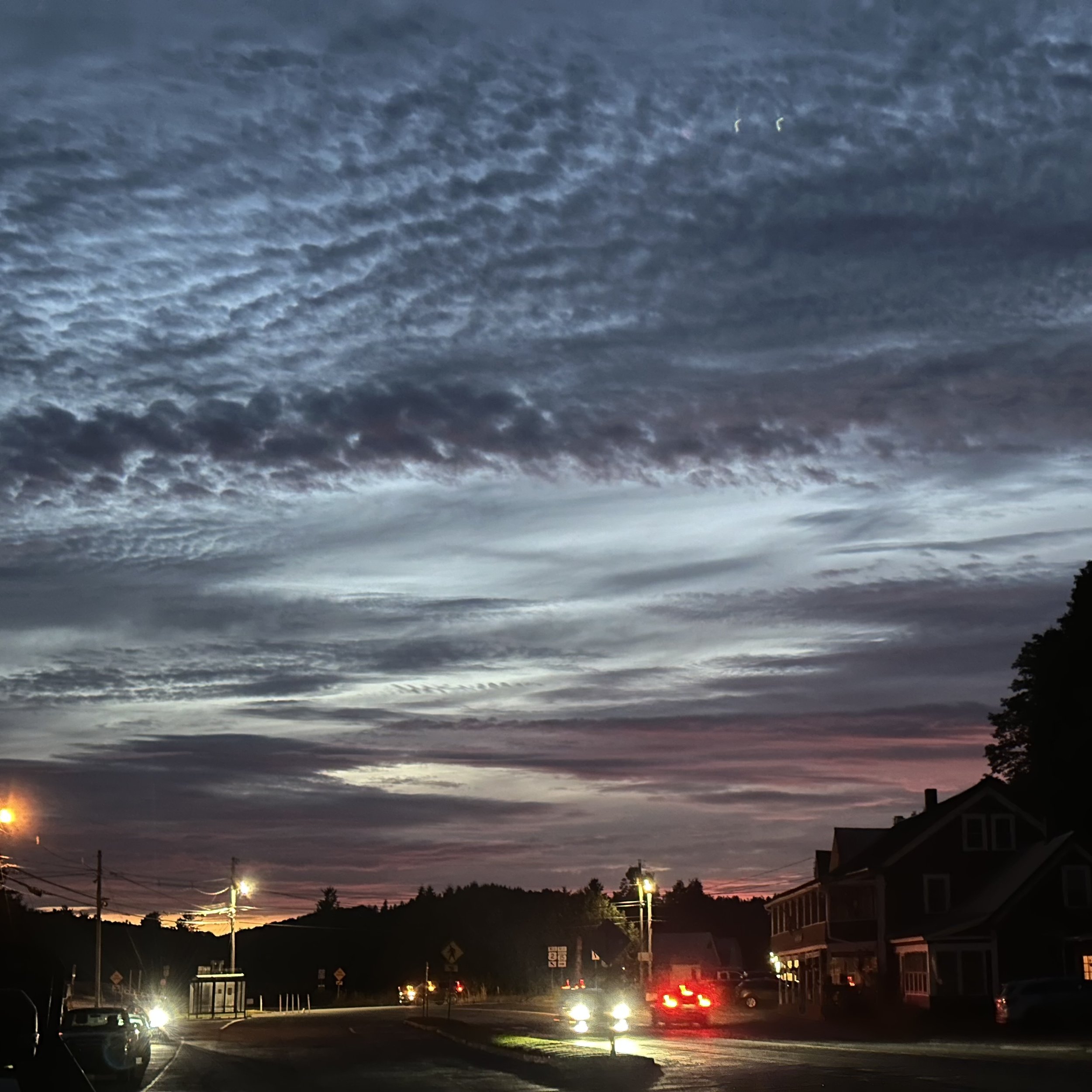
Joe made the narrative choice to tell this story through the character of Jane, a woman who by virtue of her age, era, and location could have been among my flying lesson pupils. Jane’s confessional – in equal measure rapturous and cautionary – is relayed with the unflinching honesty of a woman who somehow sees the worst and the best in herself and others, is able to privately admit both, but unable to figure out quite what to do with it all. She, like me, seems both fascinated by, and frightened of, the lines that separate the best and worst of what we can be and how we show up to our own lives and times. The very thin lines between caution and faith. Commitment and obsession. Dedication and addiction. And the thicker, but still sometimes difficult to discern, lines between effort and surrender. Responsibility and ecstasy. Liberation and escape. Freedom to and freedom from.
I, like Jane, want to believe in the possibility of finding a perch somewhere between too much and not enough. But once you’ve traveled to both extremes, been seduced by each, how do you learn to comfortably re-inhabit the place-times you find yourself in? That’s a question that might only be answerable through the living of each day that follows.
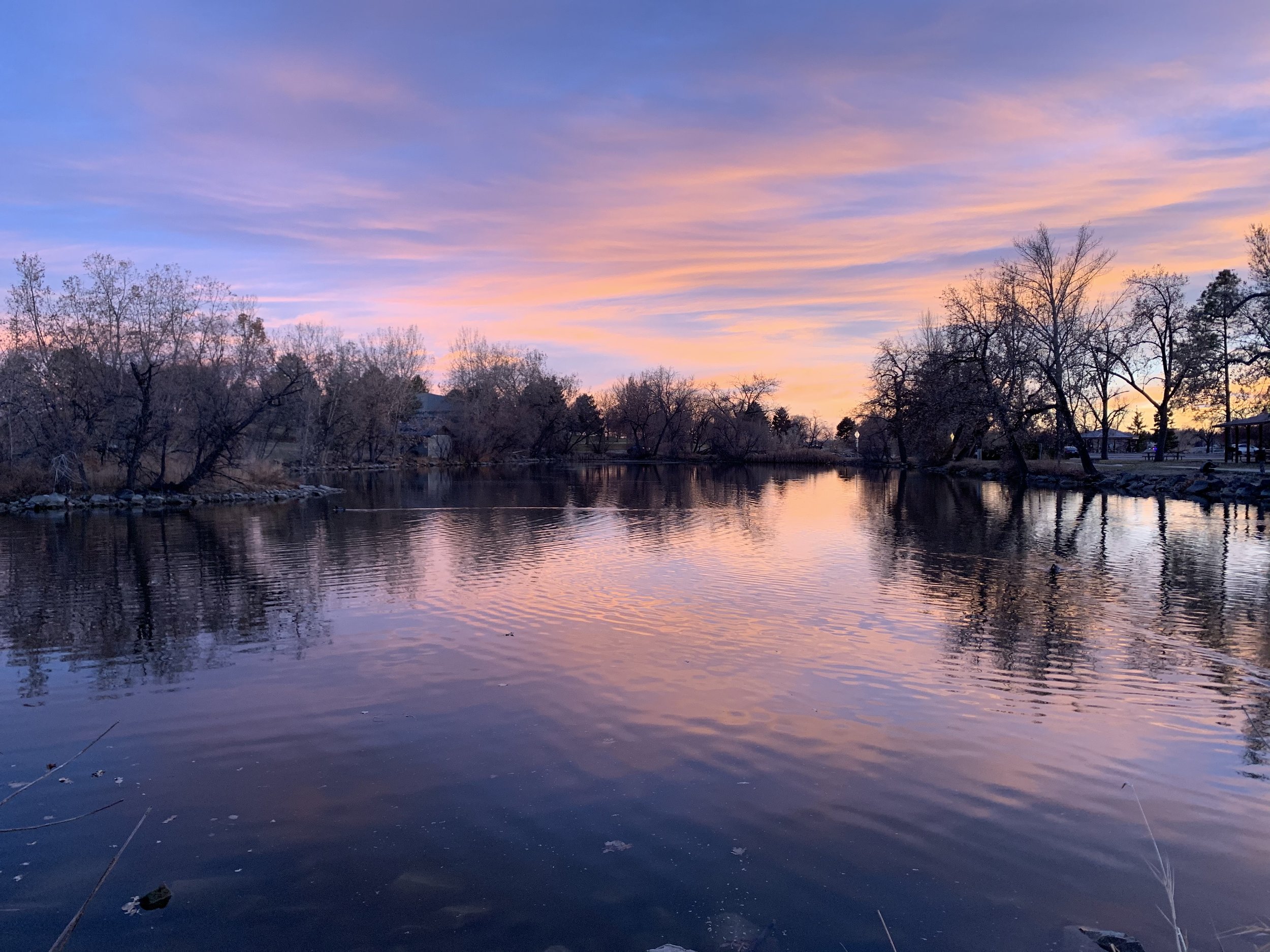
It has been forever since a novel moved so much in me. Undoubtedly, there are some personal reasons that this tale flew right into some deep parts of me. I cannot promise that it will lift to the same heights or plunge you headlong toward unyielding surfaces because I don’t know what altitude you are already at, nor do I know how you are inhabiting your own body or the earthbody. I don’t know if you feel airborne within or buried alive within late modernity. But even if your experience of reading this novel isn’t as profound as or is radically divergent from mine, I am certain that it is a worthy myth for our time. And I’m far from the only one who thinks so:
If you catch this in time, I welcome you to read it alongside other EcoGatherers as the weather warms. We’ll be hosting a book club with a short kick-off session (and optional first part discussion), a chance to discuss the whole book about a month later, and a conversation with the author.
Details and registration link are below.




